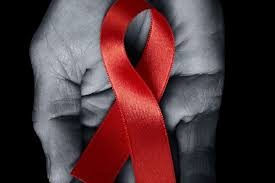 This is how it was. In the early 1980s, a whole generation of gay men who had scarcely known the ability to live and love openly was besieged by an epidemic. Because it turned sex into something dangerous, it was an epidemic which for more than a decade scarred love and relationships. It framed our world. And because it primarily affected us and other groups deemed to be less worthy or desirable it gave the green light to stigma.
This is how it was. In the early 1980s, a whole generation of gay men who had scarcely known the ability to live and love openly was besieged by an epidemic. Because it turned sex into something dangerous, it was an epidemic which for more than a decade scarred love and relationships. It framed our world. And because it primarily affected us and other groups deemed to be less worthy or desirable it gave the green light to stigma.
It appeared at first to be completely random. Gay bars and clubs were thick with confusion and fear. We knew it was spread by sex but to begin with, we didn’t understand much beyond that. And before we had even had a chance to start to make sense of what was happening, people around us were dying. We had not even secured the most basic of rights and we were faced with something which threatened to undermine the paltry gains we had started to make.
It is interesting to reflect on that moment at a time when identity politics is in the spotlight. The stark reality at the beginning of the outbreak was that gay men came together to organise because no one else much cared. Over time that changed of course. But to begin with allies, especially in high places, were hard to find.
By coincidence, I was at the launch of the Inverclyde anti-stigma partnership this morning to deliver the keynote speech. The focus of the partnership is mental health and dementia, but the fact that it is World AIDS day seemed like a gift. The experiences of stigma I encountered back then are still amongst the most profound I have known.
All too often, especially in the early days, people with HIV were met not with compassion and care, but with fear and contempt. My late partner’s experience of hospital staff failing to clean up his vomit, treating him as untouchable. My close friend dying alone and undiagnosed in his bed because he had been too ashamed to face what was happening to him and talk, even to me.
If you've ever seen the documentary of the life and times of Harvey Milk, the anniversary of whose murder was just a few days ago, you might recall the scenes of San Francisco Pride; hundreds of gay men dancing in the street to Sylvester’s, You Make Me Feel (Mighty Real). It is a scene of liberation and celebration and yet watching it with the knowledge of what came next is almost eerie. So many of those men were about to die.
In 1989 I visited New York for the first time and witnessed at first hand the devastating impact of AIDS on the community there. All the audaciousness of the gay scene which had thrived just a few years earlier snuffed out. Young men prematurely ageing and dying at the hands of a virus that was no respecter of boundaries. Fighting for equal rights on hold to fight for antiviral drugs.
Why is it important to talk about this today? Because people died needlessly and they are worth remembering. And because the most fitting tribute to them is to learn the harsh lessons of those dark days. As I said in a letter to the Guardian just a few weeks after my partner’s death in 1995, he knew who had infected him but for both of them, it was too late. Education and better health care couldn’t save them but it could help others.
Men who have sex with men are still being diagnosed with HIV at unnecessarily high rates and rising again amongst young men but it doesn’t have to be this way. PrEP offers unprecedented opportunities to stem the tide and yet making it available has involved a lot of lobbying. As we’ve been reminded by the debate in the Scottish Parliament this week gay men are still not able to give blood (I haven’t done so since 1983) because they have been needlessly and unfairly discriminated against.
Gay men aren’t (of course) by any means the only community to have been affected by HIV. And my focus on them here is not intended as any disrespect to the millions of others who have been affected. I know some of them and have paid my respects to them today. But I focus on us in this piece because, despite all the gains that we have made, gay men are still being treated differently in relation to HIV just because we are gay.
A love by any other name is just the same. That is the progress we’ve made. Those are the rights we've won. It’s long past the time when HIV should stand in the way of those gains. Isn’t it?
